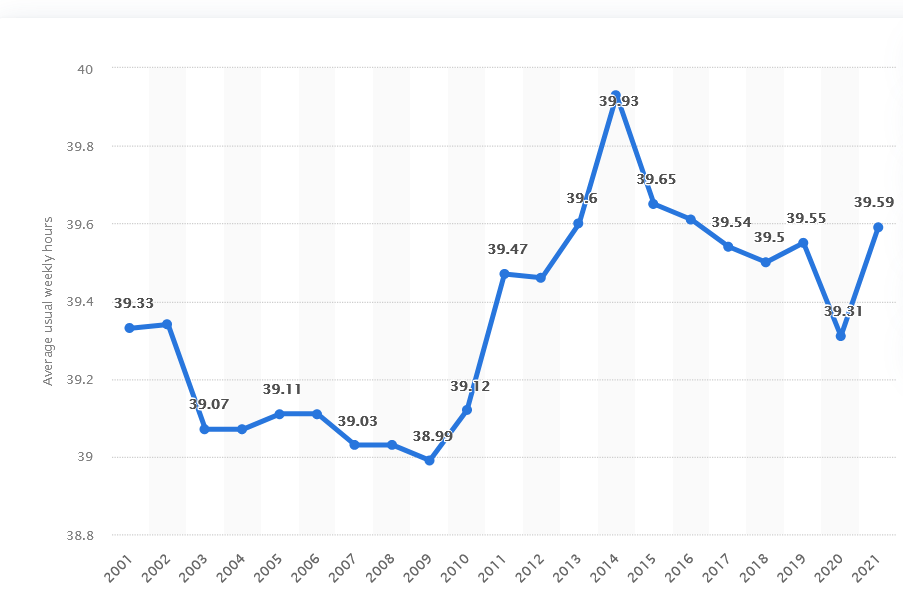Portugal
In total 39 companies took part in a 4 day work week trial
4 Day Work Week in Portugal
The workers in Portugal typically follow a five-day work week, as is the case in most parts of the world. However, the recent success of the experiments to explore the impact of a 4-day work week has paved the way for a better work-life balance.
The pilot program in Portugal emphasizes that a four-day workweek can lead to various benefits, such as improved well-being and mental health of the employees.
Also, it will ensure that the business objectives are met with a higher efficiency as compared to the standard workweek.
4-day Work Week - Collaboration of Global & Portuguese Government
The pilot study has been initiated by the collaboration of the government and the international organization Global, a propagator of the four-day workweek.
The program is part of the Global movement working to introduce shorter workweek in different parts of the world.
The four-day week uses 100-80-100™ model, where the employees don't have to undergo any reduction in pay, but they are required to work a lesser number of days.
Trial Participants
Within this study, 39 private-sector organizations are participating from different sectors. Most of the participants are from technology and professional businesses. Also, a nursery, a care home, a stem cell bank, and a scientific research firm are included in the four-day workweek trial.
Participation in this experiment aims to reduce burnout and stress in the employees and improve the retention ratio.
The Four Day Workweeks program started in June. The pilot program will be continued for the next six months and will end in December. Only then the tangible deductions from this shorter workweek study can only be stated.
However, the same four-day workweek trial in other countries around the world reflects a better work-life balance, improved productivity, environmental implications, and other benefits.
Would you like a 4 day work week?
Working Hours in Portugal
The typical schedule of a work day in Portugal is a maximum of 8 hours daily and 40 hours a week. In some cases, the work day might get longer than a typical 8-hour routine, but that has to be decided between the employee and the employer.
It has to be continued from Monday to Friday. The businesses have not accepted a four-day workweek in Portugal as a norm yet.
The working hours extend from 9 a.m. to 6 p.m. with an hour of lunch break. If the lunch break is 2 hours, the timing extends from 9 a.m. to 7 p.m.
Based on Statista’s results, over the years, the average weekly working hours in the country have remained approx. 39 hours a week, which is higher as compared to the other world countries.

Image Source: Statista
Overtime in Portugal
The work outside of a typical work shift is defined as "overtime". The companies cannot render overtime services all around the year. It is only permitted when the increase in work doesn't justify new hiring by the company. Also, the overtime must not exceed 2 hours a week or 150-175 every year.
This overtime is compulsory for the employees when the company needs it unless they have a legitimate reason to avoid it.
The overtime pay in Portugal is 125% of the normal pay for the first hour and 137.5% of the normal wage rate for the upcoming hours.
Vacation Policy in Portugal
The full-time employees are entitled to 22 paid leaves every year. Also, the contracted workers have the entitlement of 2 off days every month.
Besides these holidays, every employee is entitled to 13 National holidays in Portugal. There are holidays unique to specific locations in Portugal.
Part-Time Working in Portugal
The International Labour Organization highlights that 32% of the total employed workforce consists of part-time workers in Portugal.
Over the course of 10 years, the inclusion of workers in the part-time workforce has decreased significantly. This could be because of the growing employment opportunities as a full-time employee.
Remote Working in Portugal
According to the stats, around 19% of the total employed population is working remotely in Portugal. The trend started during the pandemic but has been practiced by different companies and businesses since. The majority of these workers are in the IT and insurance sectors.
Specialists and Intellectual workers also prefer remote work in Portugal as they believe it triggers better work-life balance and innovation.
Also, the Lisbon Metropolitan area, Portugal, has recorded the most employees working remotely.
Although the trend prevails, if a worker doesn’t want to work remotely, the employer cannot force it upon them. Besides, the responsibility of setting up the remote workplace at home for the employee is the sole responsibility of the employer.
An employee can even be entitled to remote work if he/she has a child under 3 years of age or suffers from a chronic disease. In some cases, the employees reserve the right to work remotely even if their child is up to 8 years old, but certain criteria must be met.
If you want to find a job with a shorter work week, 4 Day Week offers you a job portal where you can find your dream company. Explore now!